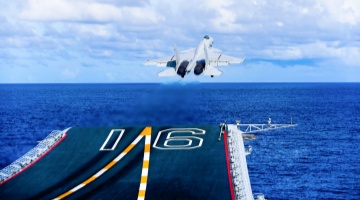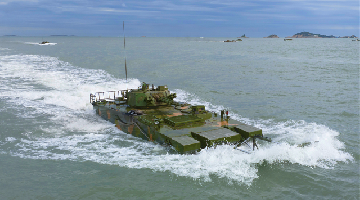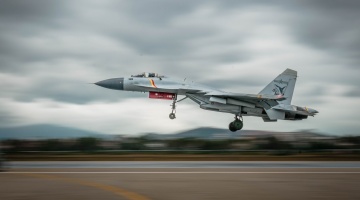By Yang Danzhi
On May 26, the multilateral exercise KAMANDAG, involving the armed forces of the US, Japan, the Philippines, and the ROK, officially commenced. For the first time, the Amphibious Rapid Deployment Brigade of Japan Ground Self-Defense Force (JGSDF) will carry out joint operations with the ROK Marine Corps.
The strengthening of Japan-ROK defense cooperation is a direct result of Washington’s push for the US-Japan-ROK trilateral and mini-lateral cooperative framework. The US is seeking to bind Japan and the ROK to its security strategy, treating them as appendages to its "Indo-Pacific Strategy" in order to maximize its control over the Asia-Pacific region. However, the political landscapes of all three countries have shifted significantly compared to the past. As a result, the prospects for further upgrading Japan-ROK defense cooperation remain uncertain.
First, the next administration in the ROK may show less enthusiasm for strengthening defense cooperation with Japan. Currently, Lee Jae-myung, the presidential candidate from the Democratic Party of Korea, is leading in public opinion polls. He has stated that, if elected, he will pursue a policy of "pragmatic diplomacy," advancing relations with China, the US, Japan, and Russia based on the national interests and practical considerations of the ROK. He has also pledged to restore ROK-DPRK communication channels and advance inter-Korean dialogue. If he assumes office, the ROK would likely adopt a more cautious stance than the Yoon Suk-yeol administration on both defense cooperation with Japan and participation in US-Japan-ROK trilateral frameworks.
Second, deep-rooted historical grievances and territorial disputes between Japan and the ROK have created a fragile foundation of public opinion for bilateral defense cooperation. Japan has long been criticized for its ambiguous stance and lack of genuine remorse over wartime issues, including the forced recruitment of comfort women and laborers during its colonial rule over the Korean Peninsula. These unresolved historical tensions have fueled long-standing resentment among people of the ROK, and related civil disputes could resurface at any time, directly affecting intergovernmental communication and cooperation. Meanwhile, the territorial dispute between the two countries has only been shelved, not resolved. The Yoon Suk-yeol administration previously faced sharp domestic backlashes for pursuing what many perceived as a "pro-Japan" policy. For instance, the decision to allow Japanese Self-Defense Forces temporary wartime access to the ROK to transport supplies for US troops stationed there sparked widespread public protests. In a political climate already unsettled by emergency martial law debates and presidential impeachment proceedings, the next ROK administration is likely to take public sentiment toward Japan more seriously as it seeks to consolidate its domestic support.
Third, a potential reduction in US involvement could weaken the momentum of Japan-ROK defense cooperation. Progress in Japan-ROK bilateral security ties has largely depended on active US mediation and pressure, which have been instrumental in mending strained relations and advancing defense coordination between the two countries. However, the new US administration’s emphasis on "America First" suggests a shift toward prioritizing American interests within the trilateral framework, while showing reluctance to shoulder greater responsibilities. There are also signs that Washington may demand increased financial contributions from Tokyo and Seoul under the guise of security commitments. If the US adopts a more hands-off approach in the future, the Japan-ROK defense partnership–currently sustained primarily by external pressure–could face serious challenges in sustaining further development.
(The author is a senior researcher at the Institute for National Security Studies at Renmin University of China.)
Editor's Note: Originally published on huanqiu.com, this article is translated from Chinese into English and edited by the China Military Online. The information and opinions in this article do not necessarily reflect the views of eng.chinamil.com.cn.













